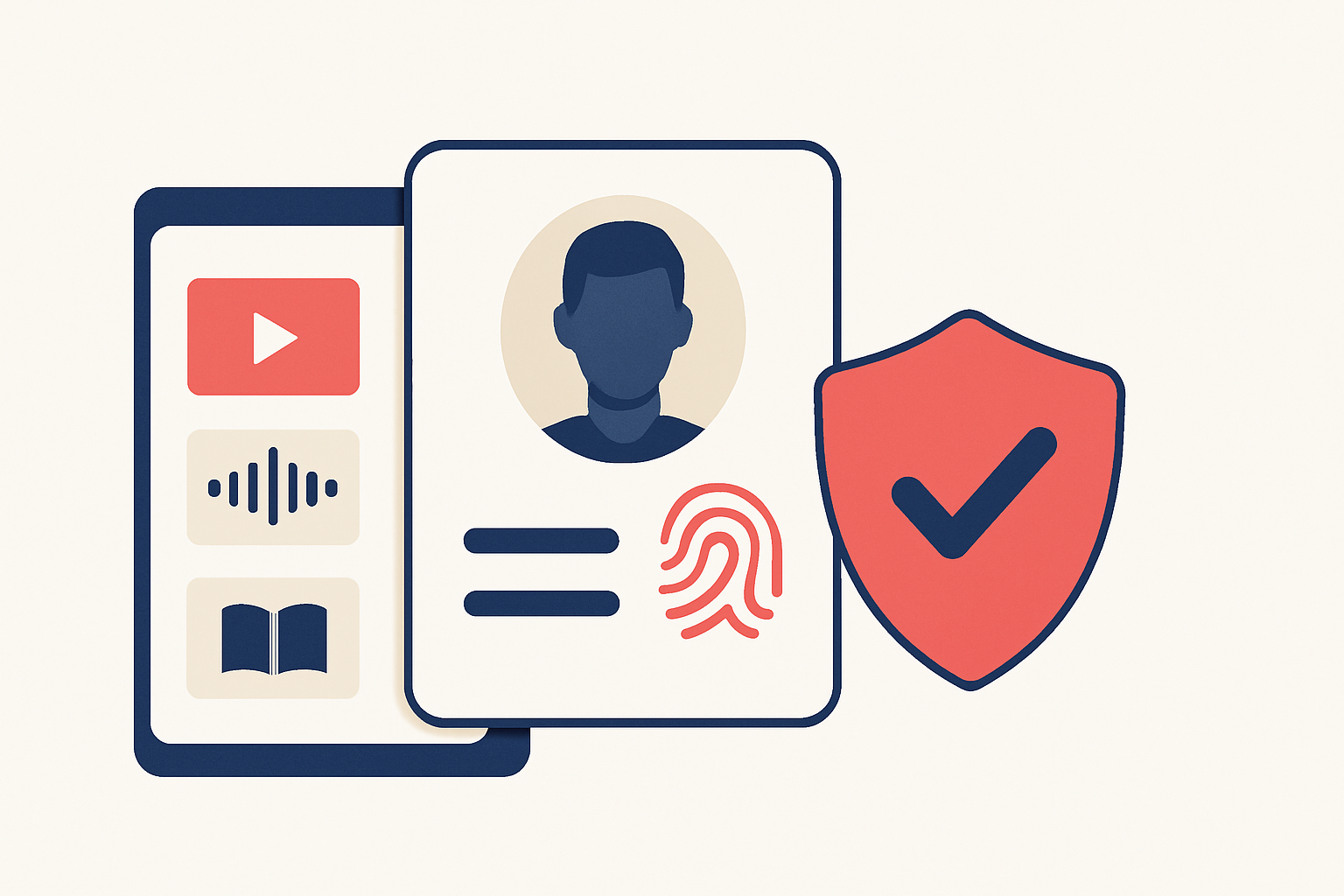Future of Digital Identity Verification

How can content apps ensure both security and user trust in the age of online identity theft and compliance laws? This question is becoming more urgent as the growth of global content platforms exposes users and businesses to new risks. Digital identity verification is no longer a future consideration—it is already a fundamental building block for streaming services, educational publishers, and community-based apps alike. Without reliable verification, user experiences suffer, compliance becomes more difficult, and trust erodes quickly.
For creators and publishers, this shift is both a challenge and an opportunity. Platforms like Audiorista give businesses the tools to launch content apps that aren’t just user-friendly but also aligned with modern verification practices. By combining accessibility with security, Audiorista helps ensure that creators scale responsibly within a fast-changing regulatory and technological landscape. In this article, we’ll explore the most important trends behind digital identity verification, what content app owners must prepare for, and how future-proof solutions can protect both users and businesses.
Why digital identity verification matters today
In today’s digital environment, identity theft, fraud, and impersonation are on the rise. These risks affect not just individual users but also the businesses that depend on reliable user engagement. For content apps, verification is no longer just a technical concern—it’s a foundation for growth. Regulatory scrutiny around user identity is another driver, with governments requiring stricter identity validation for online platforms across industries.
The benefits for content apps are immediate and measurable. Strong digital verification strengthens user trust, ensuring audiences know their data and access rights are protected. It supports compliance obligations that are increasingly mandatory across jurisdictions and markets. At the same time, advanced verification methods streamline onboarding, enabling frictionless registration and access that doesn’t compromise security. Together, these benefits make robust identity strategies a requirement for any serious content platform.
Legal and technological shifts in identity verification
Legal verification is becoming a pressing requirement for many platforms, as regulations expand globally. Measures such as Know Your Customer (KYC) checks, age verification protocols, and compliance with laws like the GDPR in Europe and CCPA in California all enforce higher standards of responsibility for app owners. For content providers, these requirements go beyond legal box-ticking; they represent essential protections for both businesses and their communities.
Implementing legal verification ensures that underage users cannot access restricted content, subscribers are who they claim to be, and data is handled transparently under international laws. By embedding these processes directly within apps, businesses create environments where users know their rights and data are being handled responsibly. This reduces liability for publishers, while boosting trust with users accustomed to higher transparency and accountability in digital services.
Biometric authentication and the future of content platforms
Biometrics—ranging from fingerprints and facial recognition to voice authentication—are reimagining how users access digital platforms. In content apps, biometrics offer a new level of seamless security. Instead of relying solely on passwords, users can verify their identity instantly through unique biological markers that are both personal and difficult to replicate.
These methods are already transforming how entertainment services, educational publishers, and community apps approach user logins. Fingerprint or facial scans minimize friction during access while significantly reducing risks of unauthorized account usage. Voice recognition brings additional opportunities for audio-first platforms, allowing verification through natural engagement. As adoption grows, biometric authentication will continue shaping a future where secure access is both fast and natural for users across all content categories.
Industry trends in digital identity verification
Identity verification is entering a new phase driven by both technology and regulation. Key trends are rapidly reshaping how platforms handle user validation, and forward-looking content leaders must track these developments closely.
AI-driven identity checks are becoming central, using machine learning to detect fraud attempts and verify documents at scale. Privacy-preserving authentication is another powerful movement, enabling secure identity confirmation without exposing sensitive personal data unnecessarily. The rise of passwordless login experiences is reshaping expectations for ease of use, moving users away from outdated reliance on static credentials. At the same time, regulatory convergence is starting to emerge as governments align frameworks around digital identity in different regions. For app owners, the convergence of these trends means preparing for both stricter standards and better solutions that align security with usability.
Preparing for a future of secure identity in content apps
For owners and decision-makers in the content industry, adapting to these trends means taking practical steps toward integrated verification solutions. Future-ready identity strategies must be prioritized during both the design and scaling phases of app development. Selecting platforms that already support compliant verification workflows is a critical advantage.
Audiorista offers a direct path for content businesses to align with these needs. By integrating verification into its app-building ecosystem, publishers can launch platforms that already meet required standards. Explore Audiorista’s features to understand platform capabilities for content app verification, compliance, and secure audience engagement.
Preparing for digital identity verification also requires process planning for creators and publishers. A step-by-step approach makes it easier to ensure that no element is overlooked in the initial rollout. Our ultimate checklist for launching a content app provides deeper guidance, offering a clear framework for building consistent, compliant, and trustworthy platforms from day one.


